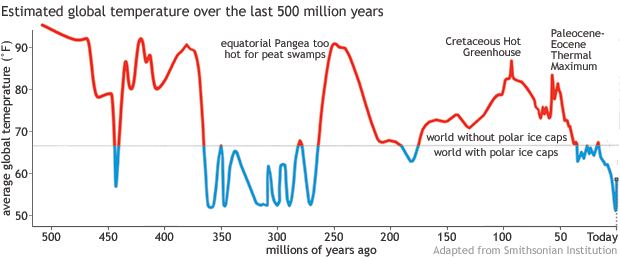Richard Lindzen, Emeritus Professor Atmospheres, Oceans and Climate, MIT
Lindzen is/was an expert at modeling the water within the atmosphere; clouds, rain and weather. Water is fundamental to weather on earth, with modeling water; cloud cover, as a function of climate change, very complex. It is so complex it is not part of any manmade climate change model. There was political pressure to get Lindzen to cave, but he had tenure and stood his ground. His conflicting water expertise is not part of the models.
Water vapor has a high heat capacity like CO2. Water vapor is also a greenhouse gas, since water like CO2 has many ways to absorb and retain energy; degrees of freedom. The wild card is the ability of water to change from gas/vapor to liquid/droplets; clouds. This changes the game.
Clouds of liquid and vapor water can act as a reflectors of solar energy, as well as insulators like CO2. CO2 will always remain a gas on earth, but water can exist as gas, liquid and solid at any given time. It adds a wild card. Depending on the ratios of water vapor, water liquid and water ice at any given time, water can tweak the CO2 impact up or down.
When glaciers form, the ice phase of water reflects solar energy. This reflection off the ice cools the earth and help cause the glaciers to grow. There was a time when the earth was so cold, due to the self advancing water/ice, that glaciers reached the equator at sea level.
Rain or liquid water can help fix CO2 into minerals like limestone, based on a reaction of liquid water, CO2 and silicates in the soil. In the case of extreme ice ages, there is little liquid water; snow but no rain, these reactions become minimal, allowing the background CO2 to stay higher, countering the ice age with a heating affect.
When water goes from gas to liquid there is about a 1000 fold reduction in volume. Within clouds this phase change pulls a vacuum; low pressure system. When a thundercloud forms warm moist air rises and condenses upward in the colder upper atmosphere, pulling a vacuum upward. This can spawn tornadoes. It can also cause water to reach high into the atmosphere cooling the water before it falls to the earth. Global warming means more water in the atmosphere, and more phase change for vacuum affects, such as for making cooling water.

